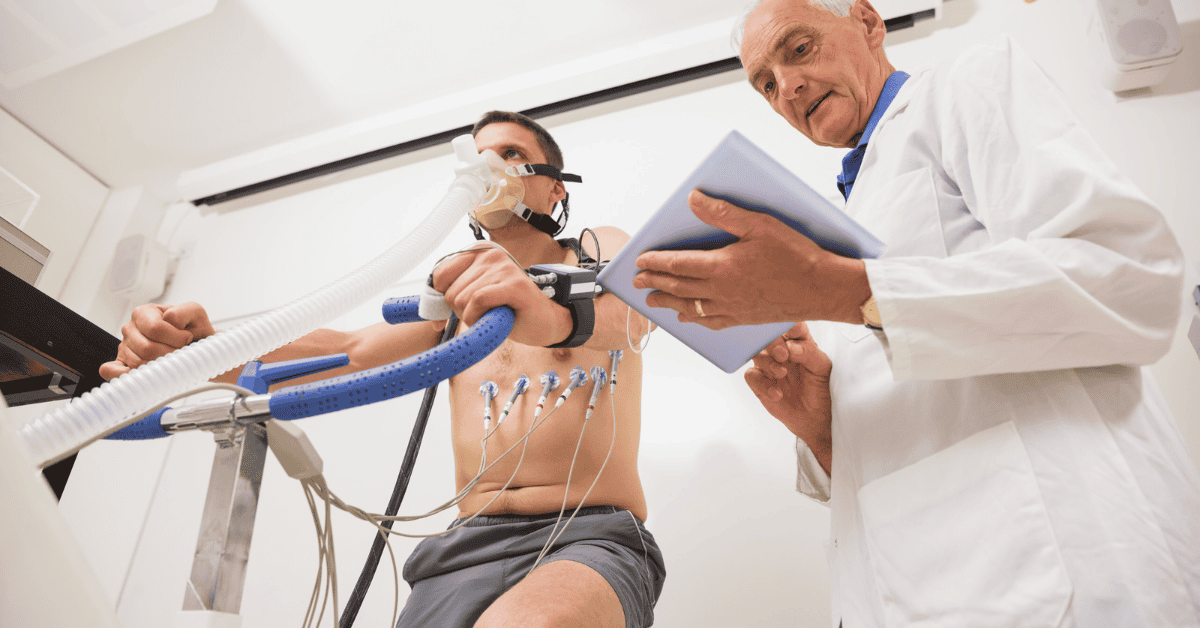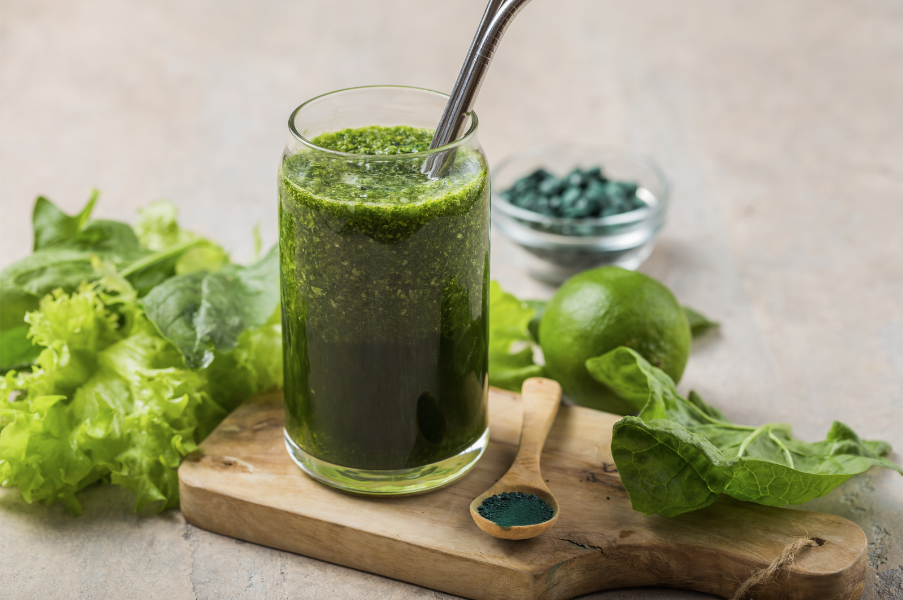
Let’s be honest…
Pre-workouts are useful.
They’re one of the most popular, but yet misused supplements available today.
While pre-workouts can help improve performance, they’re honestly not for everyone.
So who shouldn’t take pre-workout?
That’s what we’ll discuss in this article…
Let's find out.
Here's the quick answer: Pre-workouts can be a powerful tool for enhancing your workout, but they're not for everyone.
Those with heart conditions or a history of medical issues should avoid them.
However, non-stimulant pre-workouts or natural alternatives can be considered for a safer boost.
Always consult with a healthcare provider before starting any new supplement regimen.

Pre-workouts.
They're powders, pills, or drinks you take before hitting the gym.
They promise to boost your energy, increase your endurance, and help you maximize your workout.
But what's in them?
Caffeine, amino acids, and other ingredients designed to give you a boost.
But like anything, pre-workouts come with their own set of risks.
Some people might experience side effects.
These can range from mild annoyances like a tingling sensation on the skin to serious issues like high blood pressure.
It is important to know what you're putting into your body and how it might react.
Who should think twice before reaching for that pre-workout shake?
If you have certain medical conditions, pre-workouts might not be for you.
If you're sensitive to caffeine or other stimulants, skip them.
If you're prone to dehydration or have gastrointestinal issues, pre-workouts could make things worse.
And if you have high blood pressure, pre-workouts could be risky.
Also, pre-workouts could mess up your sleep if you like to work out late at night.
People with certain medical conditions should avoid pre-workouts. These conditions include:
You might also like: Comprehensive Guide to Pre Workouts
Pregnant or breastfeeding women should avoid pre-workouts.
The high caffeine content can pose risks to both the mother and baby.
Excessive caffeine can lead to miscarriage, premature birth, low birth weight, and developmental delays. [1]
If you're sensitive to caffeine, pre-workouts might cause unpleasant side effects.
These can include jitters, restlessness, insomnia, and increased heart rate. [1]
Pre-workouts are not recommended for adolescents. The high caffeine content can affect sleep patterns and may have negative effects on developing bodies. [1]
Certain medications can interact negatively with ingredients in pre-workouts.
For example, stimulants can reduce the effectiveness of sedatives and increase the effects of thyroid or asthma medications. [1]
Pre-workout supplements can lead to dehydration, especially when combined with intense exercise.
If you're prone to dehydration or exercise in hot conditions, these supplements might pose additional risks. [1]
Pre-workouts can be habit-forming due to their stimulant content.
If you have a history of substance abuse, these supplements might pose a risk of dependency. [1]
It's crucial to consult with a healthcare provider before starting any new supplement regimen, especially if you fall into one of these categories.
They can provide personalized advice based on your health history and current condition.
Certain health conditions can make taking pre-workouts risky.

Overuse of pre-workouts is a common issue among users.
The allure of enhanced performance and increased energy can lead to a cycle of dependency.
However, this can have serious health implications.
To avoid these issues, it's essential to use pre-workouts responsibly.
This means following the recommended dosage instructions, not using them every day, and taking regular breaks to allow your body to recover.
Firstly, many pre-workouts contain high levels of caffeine.
While caffeine can improve performance and focus, excessive intake can lead to jitteriness, insomnia, and even heart palpitations.
It's important to monitor your total daily caffeine intake, including that from other sources like coffee or energy drinks.
Secondly, pre-workout overuse can lead to a tolerance build-up, meaning you'll need to consume more to achieve the same effects.
This can lead to a cycle of increasing doses, which can exacerbate the potential side effects.
Lastly, some pre-workouts contain creatine, which can cause digestive issues if consumed in large amounts.
While creatine is generally safe and beneficial for muscle growth, overconsumption can lead to stomach cramps, nausea, and diarrhea.
To avoid these issues, it's recommended to:
Remember, pre-workouts are a tool to enhance your workout, not a necessity.
A balanced diet, good sleep, and proper hydration are the foundations of effective training.
But if you're healthy and want to try pre-workouts, there are ways to use them safely.
Start by talking to your doctor or a nutritionist.
They can help you understand the ingredients and how they might affect you. And remember, more isn't always better.
Stick to the recommended dose.
Here are some tips for safe use:
Not keen on pre-workouts? That's okay.
There are plenty of natural alternatives.
A balanced diet and good hydration can give you the energy you need for a great workout.
And remember good old-fashioned sleep.
It's one of the best ways to ensure you're ready for the gym.
Check out: Ultimate Muscle Building Nutrition Guide For Skinny Guys

While pre-workouts can provide a quick energy boost, they are not the only option for those seeking to enhance their exercise performance.
Several natural alternatives can offer similar benefits without the potential side effects associated with pre-workouts.
Medicinal Mushrooms
Medicinal mushrooms have been used in Eastern medicine for thousands of years and have recently gained even more popularity.
These fungi are known for their unique health advantages, including their potential to boost energy and enhance exercise performance. [9, 10, 11]
Cordyceps
Cordyceps is a type of fungus known for its stimulating effects.
It can help the body utilize oxygen more efficiently and enhance blood flow.
This can be especially helpful for athletes or those who regularly work out.
Cordyceps has been shown to not only improve exercise performance, but also speed up post-workout muscle recovery. [9]
Reishi
Reishi is another popular medicinal mushroom.
It is known for its calming properties, thanks to the compound triterpene.
These mood-boosting compounds may alleviate anxiety, ease depression, and encourage better sleep. [9]
Reishi can also promote healing and sharpen focus.
Turkey Tail
Turkey tail contains a compound called polysaccharide-K (PSK) that stimulates the immune system.
It has been shown to improve the survival rate of people with certain cancers, fight leukemia cells, and improve the immune system of people receiving chemotherapy.
Shiitake
Shiitake mushrooms are particularly good for the heart.
They have been shown to lower LDL cholesterol in mice and contain compounds that inhibit the absorption and production of cholesterol in the liver. [9]
Other Natural Energy Sources
In addition to medicinal mushrooms, several other natural energy sources can serve as alternatives to pre-workouts.
Green Tea
Green tea is a natural source of caffeine and can provide a gentle energy boost without the jitters often associated with pre-workouts.
It also contains antioxidants that can help protect the body from damage.
Water
Staying hydrated is crucial for maintaining energy levels.
Even mild dehydration can lead to fatigue and reduced physical performance.
Whole Foods
Eating a balanced diet rich in whole foods can give the body the nutrients it needs for energy.
Foods high in complex carbohydrates, such as whole grains and fruits, can provide sustained energy, while foods high in protein can aid in muscle recovery and growth.
Beetroot Juice
Beetroot juice has been shown to enhance athletic performance by improving oxygen use and time to exhaustion.
It's a great natural pre-workout drink for endurance athletes.
Remember, while these natural alternatives can provide energy and enhance performance, they should be used as part of a balanced diet and should not replace a healthy lifestyle.
While many pre-workouts rely on caffeine and other stimulants to provide a quick energy boost, not all do.
Non-stimulant pre-workouts are an excellent alternative for those who are sensitive to caffeine or who workout later in the day and don't want their sleep to be affected.
Non-stimulant pre-workouts often enhance performance by using amino acids, creatine, and beetroot powder.
These ingredients can help improve muscle endurance, increase muscle flow, and aid in recovery.
For example, amino acids such as beta-alanine and citrulline malate can help buffer lactic acid in the muscles, delaying fatigue and allowing for longer, more intense workouts.
On the other hand, Creatine helps to increase the body's stores of phosphocreatine, a form of stored energy in the cells, leading to improved performance during high-intensity exercise.
Beetroot powder is another common ingredient in non-stimulant pre-workouts.
It's high in nitrates, which the body can convert into nitric oxide.
Nitric oxide helps to dilate blood vessels, increasing blood flow to the muscles and improving exercise performance.
It's important to note that while non-stimulant pre-workouts can be a great alternative, they may not provide the same immediate 'kick' that stimulant-based pre-workouts do.
However, they can still greatly enhance workout performance and recovery.
Learn more: Definitive Guide to Bodybuilding Supplements
Who benefits the most from pre-workouts? Those who exercise with intensity, such as athletes or regular gym-goers, will likely benefit most from pre-workouts. These supplements can boost energy, increase focus, and enhance performance during exercise.
Can I take pre-workouts if I exercise in the morning? Yes, especially if you're exercising in a fasted state. A pre-workout can provide a pick-me-up when training on an empty stomach.
Are there any side effects of pre-workouts? Some people may experience side effects such as headaches, flushed and red skin, trouble sleeping, itching, anxiety, high blood pressure, kidney damage, and chest pain. If you experience any of these symptoms, it's best to stop taking the supplement and consult a healthcare professional.
Can I take pre-workouts every day? This depends on the specific pre-workout supplement and your individual health. Some pre-workouts may be safe to take daily, while others should not be taken 5, 6, or 7 times a week. Always follow the manufacturer's instructions and consult a healthcare professional if you're unsure.
What should I do if I need a pre-workout supplement to get ready to workout? If you need a pre-workout supplement to get ready to workout, it is worth analyzing other aspects of your health and lifestyle, such as your sleep, rest, and recovery schedule. Improving these areas could enhance your energy levels and workout performance without needing a supplement.
Are pre-workouts suitable for everyone? No, pre-workout supplements are not ideal for everyone. Certain people, such as those with certain medical conditions or those who are pregnant or breastfeeding, should avoid taking them. Always consult a healthcare professional before starting any new supplement regimen.
Can pre-workouts improve endurance? Yes, some pre-workouts, particularly those containing caffeine, can improve endurance and muscle strength. However, the effects can vary depending on the individual and the specific supplement.
Are there natural alternatives to pre-workouts? Yes, there are several natural alternatives to pre-workouts, such as beetroot juice, green tea, coffee, water, whole grains, bananas, and medicinal mushrooms. These can provide energy and enhance performance more naturally.
Can pre-workouts help with weight loss? Some pre-workouts may help with weight loss by boosting your metabolism and helping you burn more calories during your workout. However, they should not be relied upon as a sole weight loss method. A balanced diet and regular exercise are crucial for healthy weight loss.
Can pre-workouts cause kidney damage? In some cases, pre-workouts may cause kidney damage, particularly if taken in excess or if the individual has a pre-existing kidney condition. It's always best to consult a healthcare professional before starting any new supplement regimen.
Individuals with heart conditions should avoid pre-workouts.
These supplements often contain stimulants like caffeine, which can increase heart rate and blood pressure.
This can be risky for those with underlying heart issues.
People with medical conditions or a history of health problems should also be cautious.
It's crucial to consult with a healthcare provider before starting any supplement regimen, including pre-workouts.
However, it's not all doom and gloom.
For those who need a boost but want to avoid stimulants, non-stimulant pre-workouts are a viable option.
Additionally, natural alternatives to pre-workouts, such as a balanced diet and adequate hydration, can also provide the energy needed for a great workout.
Influence of dietary nitrate supplementation on exercise tolerance and performance
Medicinal plants of the Shinasha, Agew-awi and Amhara peoples in northwest Ethiopia
Useful Links
 About FitFrek
About FitFrekFitFrek operates as an independent platform, offering comprehensive workouts, programs, routines, guides, and unbiased reviews to accelerate your progress. We pride ourselves on our honesty, delivering straightforward and candid insights. FitFrek does not offer medical advice, diagnosis, or treatment services.